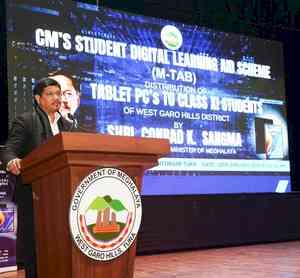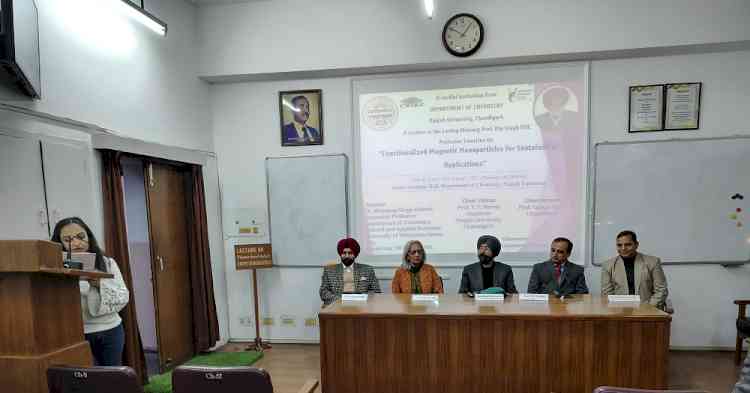AI posing threat to engineering jobs, say experts from MIT World Peace University
The rapid evolution of AI is posing a threat to significant number of engineering jobs because of its ability to automate routine and repetitive tasks and perform complex calculations and data analysis. According to an estimate, as many as 20-40% of all engineering tasks are at risk of automation in the coming decade. Engineers who can leverage AI tools effectively will stay in high demand while those unable to adapt will increasingly face job insecurity. This was said by professors of the Pune-based MIT World Peace University ahead of Engineers Day.

Pune, September 13, 2024: The rapid evolution of AI is posing a threat to significant number of engineering jobs because of its ability to automate routine and repetitive tasks and perform complex calculations and data analysis. According to an estimate, as many as 20-40% of all engineering tasks are at risk of automation in the coming decade. Engineers who can leverage AI tools effectively will stay in high demand while those unable to adapt will increasingly face job insecurity. This was said by professors of the Pune-based MIT World Peace University ahead of Engineers Day.
Said Dr. Dinesh Seth, Dean, School of Engineering & Technology, MIT World Peace University, Pune: “The role of engineers is going to be hugely impacted as AI becomes more prevalent due to automation of routine tasks across all engineering disciplines. As the future unfolds, today’s engineers will need to evolve by focusing on supervising and interpreting AI outputs, integrating AI with existing systems and managing AI-driven processes. This can create uncertainties and challenges for those not prepared for this transition.”
Added Dr. Mangesh V. Bedekar, Dean, School of Computer Engineering & Technology, MIT World Peace University: “Most traditional engineering tasks are increasingly being automated with AI. This is leading to less demand for certain kind of engineering jobs and triggering a shift towards roles that require higher-level problem-solving and integration of AI. As AI takes over more routine tasks, roles that require more advanced skills or human judgment will be more in demand. Engineers who lack skills in AI and data analytics will find themselves at a disadvantage. There is going to be a growing divide between high-skill, high-paying jobs and low-skill, low-paying jobs, with fewer job opportunities in the middle.”
According to the professors, engineering jobs that involve repetitive or routine tasks, those having standard procedures or well-defined rules, and those relying heavily on data analysis are at higher risk of redundancy due to AI. Dr. Mangesh V. Bedekar said: “Not everything is gloomy, however. AI is also expected to create new opportunities and transform existing roles, leading to a shift rather than an outright reduction in employment. The rise of AI augmented engineering will require engineers to work alongside AI systems. They will need to focus on tasks that require human creativity and complex decision-making, while AI would handle more of the data-driven and repetitive aspects.”
The rise of AI is already impacting the kind of engineers that employers are looking to hire. “Recruiters want candidates who can bridge the gap between engineering and AI. Engineers with skills in AI, machine learning, and data analytics are in high demand as companies look to integrate AI into their operations. There is also a growing number of job openings related to AI and data science, leading to an increased emphasis on these areas in campus recruitment. Students with experience in AI projects, internships, or specialized courses are attracting more attention. There is also a noticeable increase in recruitment by startups and tech companies focusing on AI innovations,” said Dr. Dinesh Seth.
To stay relevant in job market, engineers will have to focus on developing skills that complement AI technologies, said the professors. “Learning about AI, machine learning, and data analytics would help today’s engineers take advantage of the emerging opportunities. Skills in creativity, complex problem-solving, and critical thinking would continue to remain valuable as these cannot be replaced with AI yet. To survive and thrive in the new AI environment, engineers would need to embrace life-long learning, develop AI and data-science skills, focus on complex problem solving through innovative thinking, and focus on roles that AI cannot easily replace,” added Dr. Dinesh Seth.


 City Air News
City Air News 













